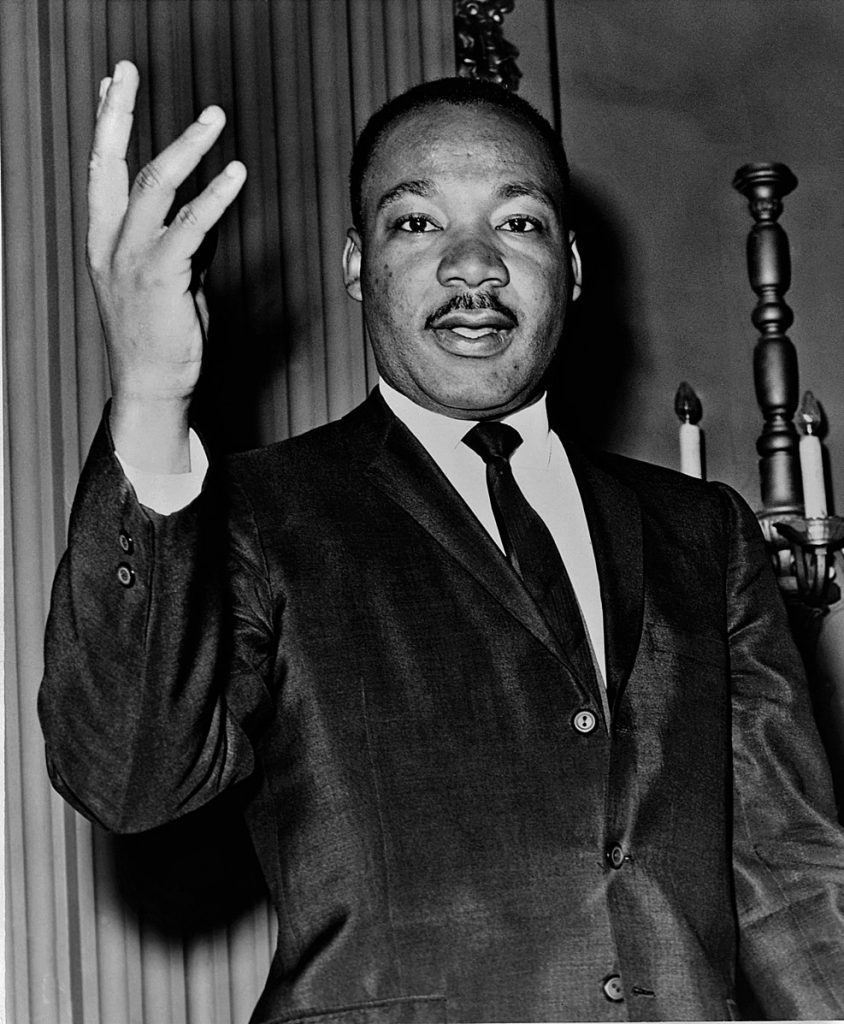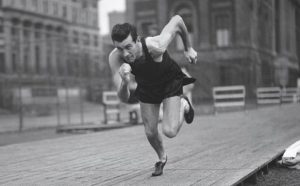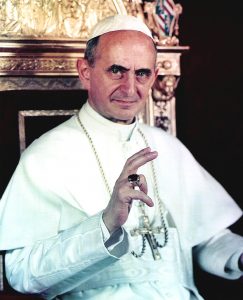When news broke that civil rights leader Martin Luther King Jr. had been killed on April 4, 1968 in Memphis, Tennessee, people couldn’t help but feel anger and outrage. King, who had started a revolution to end social injustice, had just been killed, and many people were left wondering if they would forever be stuck in a never-changing world.1

When black citizens in Washington D.C found out King had been killed, they wanted local stores to close out of respect for this civil rights leader. When stores did not close, this lack of respect sparked a dispute between citizens and the police. What started off as a peaceful mourning ended up a four-day violent riot where people were smashing windows, breaking into stores and hurting each other. Store owners wrote “Soul Brother” on their windows to let rioters know they were black-owned and also mourned King’s death. Because Dr. King didn’t believe violence was the answer, it’s ironic that rioters used violence to show their anger about his assassination.2
The rioters seemed ready for war and had no plans on stopping, which caused 13,600 troops, along with the National Guard, to try to end the riots. They gave the citizens a curfew and stopped selling alcohol and guns in hopes they would give up on rioting. Although the mayor instructed them not to fire at anyone, troops shot two people and injured many more. In total there was 12 deaths and 1,098 injuries in Washington D.C alone. Throughout the nation, cities such as Chicago, Kansas City, and Baltimore were having their own riots related to the assassination, and the nation accumulated more than 2,500 injuries and 40 deaths. Each city seemed handle the riots in similar ways, but Washington had the most damage and the hardest time getting back to normal after the riots.3
Police continued monitoring the streets, and on April 8, 1968, the city seemed to be done with the riots. The city of Washington D.C started rebuilding after accumulating $25 million in damages during the riot. Some areas were fixed right away, while other areas such as Seventh Street and Florida Avenue NW took more than thirty years to return to normal. Due to this rebuilding process, the economy tanked, causing “white flight,” where many white residents moved away from Washington D.C because of the violence occurring in the neighborhoods.4

The riots may have ended, but people across the nation were still hurting and angry. On April 11, 1968 Lyndon B. Johnson signed the Civil Rights Act Of 1968, which prohibited discrimination concerning the sale, rental and financing of housing based on race, religion, national origin or gender. Many believe that President Johnson signed this act in attempt to prevent any more riots and outbreaks that may have occurred in the nation. Although signing this act didn’t cure racism and didn’t heal the broken hearts of the many people mourning, it was a step in the right direction and the last major act of the Civil Rights Movement.5
- Adrienne Wilmoth Lerner, Brenda Wilmoth Lerner, and K. Lee Lerner, City of Memphis v. Martin Luther King Jr. (Detroit: Gale, 2006), 345-348. ↵
- Meggin Condino, Martin Luther King Jr.’s Assassination Shocks the Nation (The Arts, Business and Industry: UXL, 2010), 42-44. ↵
- Meggin Condino, Martin Luther King Jr.’s Assassination Shocks the Nation (The Arts, Business and Industry: UXL, 2010), 42-44. ↵
- Encyclopedia of Social Problems, 2008, s.v. “White Flight.” ↵
- Encyclopedia of African American History, 2010, s.v. “Civil Rights Act of 1968.” ↵



51 comments
Sarah Nguyen
I had no idea that Martin Luther King Jr.’s assassination led to this big of a riot. I can completely understand the reaction and hurt felt by the people at this time – a leader such as he cannot be replaced. I like how the author pointed out that the violence in the actions was ironic though, since Martin Luther King was an advocate for peace, and I wonder what the reaction was when Malcolm X was killed. Although I am truly saddened by the death of MLK, at least the Civil Rights Act of 1968 came out because of it.
Ysenia Rodriguez
Martin Luther King Jr was my hero growing up. As a man who sought to bring peace through nonviolent protests and marches across America, it’s horribly ironic that his followers responded in outrage and violence after his assassination. This aspect of the aftermath of King’s death was well highlighted throughout this article and overall it was written very well. Great job.
Nathalie Herrera
Martin Luther King Jr. was looked upon and is still looked upon as a inspirational speaker and motivator. He fought for human rights and plead for a world where everyone looked upon each other as equals. He had great love, strength and hope for the world and in turn this gave us the people within the world love, strength and hope also. His assassination was truly a devastating one but his legacy still lives on.
Eloisa Sanchez Urrea
I think it is sad to see that the death of a man that advocated peace and unity lead to riots. I had no idea that Martin Luther King’s death was followed by so much violence. This was a well-written article and their use of detail helped portray the destruction. It was interesting to see an MLK article that focused on his death and the aftermath.
Bictor Martinez
It is not right for the followers of Martin Luther King Jr. to act violently after his death. If the followers knew what he stood for they would not act violently towards others. King was a man who spoke his thoughts out without the usage of violence. He also was encouraging his followers to do the same however, the riots after his death proved that they did not listen to him. Despite how angry they were after the death of King, they should have continued what he had started. Great article!
Eric Ortega Rodriguez
Martin Luther King Jr. was someone who believed in peace and in equal rights for everyone, he was fighting for something that he believed in very much. Something that he knew that he wanted to make a difference in. It is sad to read that most of the effects his death was a negative one. They used violence as a way of making a movement which is the opposite of what Martin Luther King Jr. was trying to teach. Overall, a very interesting article with a good topic choice.
Daniela Duran
This was a very interesting article! I had heard about the assassination of Dr. King all my life, but never about the riots caused by his death. I believe this only demonstrates how influential and powerful his actions and his words were, and it serves as proof that he actually made an impact in society. I do not understand why the people wanted the stores to close, but I believe it had something to do with what they demanded in terms of discrimination? Either way, I think the riots themselves were influential, because they eventually led to the formal creation of agreements that gave a beginning to the elimination of racism and discrimination!
Brianna Ford
This is a great informative article on Dr. Martin Luther King Jr. He is a great man who is very respected and loved by many people. It is still sad to see that despite all his efforts there is still many racism that goes on in this world. I did not know how many riots broke out because of his death, shows how much people looked up to him. I just wish there was peace in the world and never violent.
Luis Magana
Martin Luther King Jr has a legacy that will never die off. He was so influential and was a genuine person who wanted racial and economic justice. I had to research about him because of a paper i am writing and every time i look up information about him i found out something new about him i didn’t know. Its crazy that after so many debates and years there is still racism to this day. It was a great article and i really like the first image that was placed in the article.
Maxx Arizmendi
Loved this article, it was a great read. I find it interesting that despite all that Dr. King did to end racism, there is still racism to this day. Many believe that racism is a natural thing that people are born with, but it’s something that gets taught. It was interesting that the stores didn’t close their doors out of respect, which was pretty disgraceful. Although King is passed on, he has a never-ending legacy.